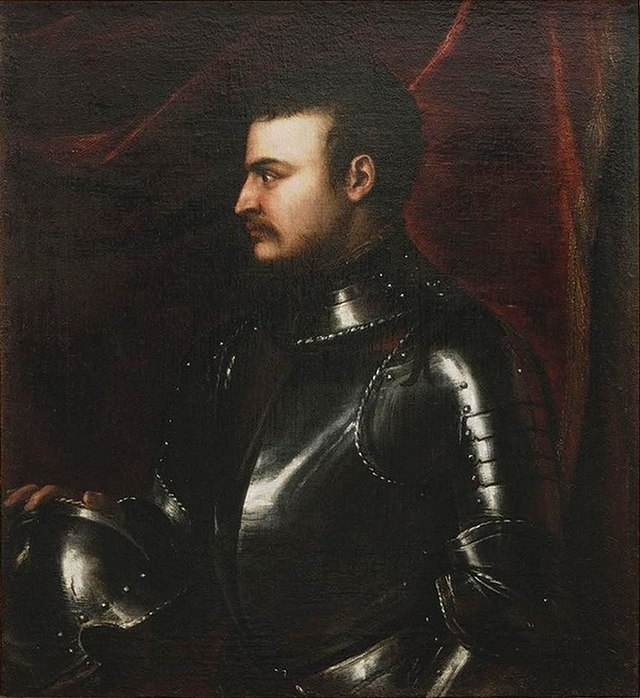The Great Black Devil
The last great captain of fortune

Portrait of Giovanni dalle Bande Nere (1545) - Wikicommons
The condottiero was a skilled soldier who, for profit, placed himself in the service of popes, kings, or lords as a commander in the wars that plagued 16th-century Europe. Among the many, Ludovico di Giovanni de' Medici (1498–1526) was the most talented and renowned. Born of a Medici and a Sforza, Giovanni enjoyed financial security and a network of influential connections from a young age, enabling him to live a privileged life. However, his passion for weapons, women, and gambling, combined with his quarrelsome nature — always ready for a brawl (he killed two men in such altercations) — led his family to banish him from Florence and later from Naples, forcing him to relocate to Rome.
In Rome, Giovanni came under the protection of two Medici popes: Leo X and Clement VII. In 1516, he commanded a cavalry unit for the first time during the War of Urbino (as Leo X sought to secure the duchy for his nephew), distinguishing himself through his skill and valor by successfully capturing the city. He later married Maria Salviati, the daughter of his protector Jacopo Salviati, and their union produced Cosimo I de' Medici, the future Grand Duke of Tuscany.
From an undisciplined youth, Giovanni transformed his soldiers into a skilled and disciplined force governed by a strict code of honor. He also innovated military tactics, emphasizing rapid and sudden attacks to outmaneuver the new heavy artillery weapons. To enhance their effectiveness, he darkened his soldiers' uniforms for greater stealth at night, lightened their equipment, and, after the death of Leo X, blackened his banners (previously purple and white), thus creating the legend of the "Black Bands." Giovanni's ferocity earned him the nickname "The Great Devil."
The military successes of his mercenary group bolstered his fame to the point that the Duke of Milan granted him land, though he later lost it due to the constant shifts in power among the Italian states. In 1522, he was appointed general of Florence's troops and subsequently served the French against Charles V. In 1527, he attacked the Landsknechts advancing on Rome, but a cannon shot, delivered after the battle had ended, ultimately led to his death.
Alessandro Augusto Monti della Corte, Giovanni dalle Bande Nere, Augustea, 2009
Carlo Capra, Storia Moderna 1492-1848, 4th edition, Le Monnier, 2021
2025-08-23
Salvatore Ciccarello
